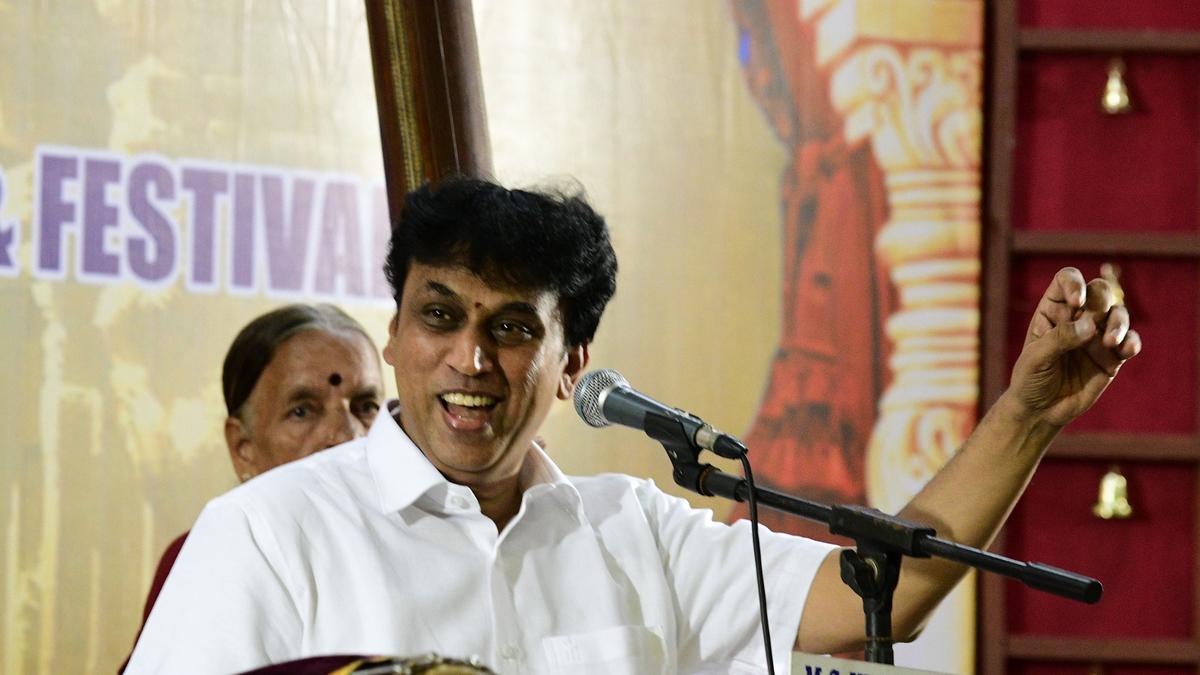Chief Justice of India B.R. Gavai, heading a five-judge Presidential Reference Bench, on Wednesday (September 10, 2025) pointed to Governors sitting on Bills for years together even as the Union government referred to disputes raised by Opposition-ruled States such as Tamil Nadu and Kerala over inexplicable gubernatorial delay as a “false alarm”.
“How can you say that when Governors are sitting over Bills for four years?” Chief Justice Gavai asked the Centre, represented by Solicitor General Tushar Mehta.

The Reference had followed an April 8 judgment of the court in the Tamil Nadu Governor case, which prescribed a three-month time line on the President and Governor to decide Bills. Tamil Nadu had approached the apex court after the State Governor sat over 10 Bills for four years, since 2020.
Mr. Mehta reasoned the Centre was not justifying Governors delaying assent to Bills “endlessly”. He had only meant to say that a State and its Governor must act “collaboratively” to ensure the smooth working of the Constitution.
“We are proud of our Constitution, considering what is happening in the neighbouring countries. Like what happened in Nepal yesterday…” Chief Justice Gavai remarked. Justice Vikram Nath mentioned Bangladesh in the same context.
Mr. Mehta said “collaboration” was possible only if both parties (State and Governor) had powers. He argued there was no room for collaboration if the Governor was expected to toe the line of the State Cabinet and mechanically sign Bills put before him for assent.
“The Governor cannot be reduced to an ornamental head of State. We may have had some aberrations, but for the past 55 years every Governor has acted in a way expected of them, in a collaborative manner,” Mr. Mehta submitted.
He objected to Opposition-ruled States’ argument that instances of Governors delaying Bills had increased after the NDA government came to power in 2014 at the Centre.

Justice Vikram Nath observed the Reference Bench was not tracing what happened before or after 2014. The court was answering the questions of law raised by the President in the Reference.
“The question is not whether one Bill has been withheld or a 1,000 Bills have been withheld. The questioning is whether a Governor can withhold a Bill indefinitely,” Justice Surya Kant observed.
Justice P.S. Narasimha tested the Centre’s submission that the moment a Governor withheld assent to a Bill in the first instance under Article 200, the proposed law would fail. The judge asked how a Bill passed by both Houses of State legislature, after due consultation, could be failed by the solitary action of the Governor withholding assent.
“Should there not be a consultative process by which the Bill is returned to the State legislature for reconsideration. This way both the State Assembly and the Governor get a role to play,” Justice Narasimha asked.
Appearing for both Tamil Nadu and its ruling party of DMK, senior advocate P. Wilson argued that a Bill was an “expression of political will”.
“A Governor cannot act like a constitutional court, adjudicate on the constitutionality of a Bill and unilaterally withhold it… If timelines are not set for gubernatorial assent to Bill, States will be left to wander the corridors of the court,” he submitted.
‘Sitting ducks’
Advocate Avani Bansal, appearing for Tiruvallur MLA Sasikanth Senthil, said citizens could not be made “sitting ducks” by a Governor who sits on, for example, a health care Bill for years together.
“If the Governor sits indefinitely on a Bill, Article 200 would be made unworkable and superfluous,” Advocate General of Meghalaya Amit Kumar submitted.
Senior advocate Gopal Sankaranarayanan, appearing for a former IPS officer and an advocate, argued that discordant situations may arise with no avenue for relief if there was no power of judicial review over actions of high constitutional authorities like the Governor.
The State of Telangana, represented by senior advocate S. Niranjan Reddy, submitted that a Governor’s action must be judicially reviewed for discrimination if a law assented to in one State ruled by the same party as in the Centre was disapproved by a Governor in a State governed by a party in the Opposition.
He said the Constitution was drafted at a time when States showed “fissiparous tendencies”.
“Seventy-five years later, that danger is no longer there. Interpreting a constitutional provision now to dilute the powers of the States by reading in wide discretionary powers to a Governor is not conducive… It is highly unlikely that a democratically-elected Council of Ministers would give bad advice to the Governor while sending a Bill for approval,” he noted.



.png)
.png)
.png)
















 3 hours ago
3
3 hours ago
3






 English (US) ·
English (US) ·